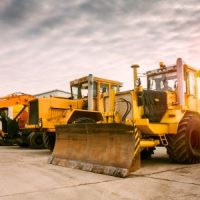Some Basics Of Leasing Construction Equipment

The construction industry can require that you have a lot of equipment at your disposal. That equipment can be pretty expensive, and whether you are a general contractor or a subcontractor or an independent contractor, those may be expenditures that you aren’t ready or able to make.
The Benefits of Leasing
That’s why leasing that equipment may be a viable option for you. Leasing allows you to “borrow” heavy machinery and other equipment, while paying what essentially amounts to a rental fee for the use of the machinery. Because leasing is temporary, it doesn’t require you to make the long term commitment to a piece of machinery that you’d have to make with a purchase of equipment.
Lease Agreement Legalities
When you lease anything, the lessor will require that you sign a lease agreement. That lease agreement can have legal terms and conditions that you should be familiar with, before you sign the agreement. Some common issues in lease agreements include:
- Taxes– Sometimes, you can be taxed on equipment you are leasing. Or, the owner/lessor can be taxed. Who will pay additional taxes that may be incurred should taxes increase on the leased equipment?
- Insurance – Who is paying for insurance, or even procuring the insurance policy? The lessor will almost certainly require that the equipment be insured. Speaking of insurance, what if the equipment is damaged for a reason that isn’t your fault—but that reason is also excluded from coverage in the insurance policy?
- Renewal – How is the lease renewed? Does it renew automatically? On one hand, you may want to give the equipment back at the end of the lease, having used it, and maybe you want to move on. On the other hand, you may not want the lease to terminate, as you may still be using or relying on the equipment.
Either way, make sure you know how the lease is renewed, whether it is automatically renewed, and whether the conditions for renewal change the original conditions of the lease.
Short and Long Term Leases
Generally, there are long and short term leases.
Long term leases will usually require that you bear all the costs of maintaining and repairing the equipment, and generally keep it in safe and operable condition. However, many long term leases also may allow you to “lease to own,” where your lease payments are credited towards an option to purchase the equipment outright at a certain point.
Shorter term leases are good, as the lessor usually bears the costs of maintenance and repair, and you aren’t committed to anything—if you don’t like the equipment, or want to upgrade, you aren’t tied to the machinery that you are leasing.
Note that many leasing companies will require a credit check to lease, as you may require financing for down payments, or other expenses.
Our Fort Lauderdale construction attorneys at Sweeney Law P.A. at 954 440-3993 can help you with your construction law contracts and agreements.
Sources:
contractscounsel.com/t/us/equipment-lease
sec.gov/Archives/edgar/data/935066/000119312504050784/dex1056.htm
